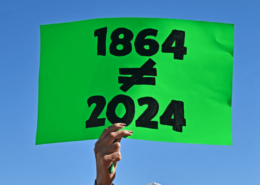Problem
Vacant housing hinders economic development, weakens the tax base and imposes significant costs on already-struggling municipalities and their taxpayers. These properties have a devastating effect on neighbors, local businesses and governments at all levels: increases in vacant housing bring increases in crime, reduction of property values and decline of the quality of life, even in previously stable communities.
Solution
The Cook County Land Bank, the largest geographic land bank in the country, was created in January 2013 as a public/private partnership to revitalize communities by redeveloping vacant land and finding new uses for abandoned buildings. The Land Bank’s goals are to reverse the cycle of neighborhood decline and promote economic development and neighborhood stabilization.
Recently, and on a national stage, the Cook County Land Bank partnered with the Federal Housing Finance Agency to launch the Neighborhood Stabilization Initiative (NSI), a pilot program that will allow Fannie Mae, as one of the largest holders of foreclosed property in the county, the ability to help the CCLBA aggressively pursue its geographic strategy by focusing on 13 Chicago and Cook County neighborhoods.
How to steal this idea:
The passage of the Cook County Land Bank Ordinance was the culmination of over three years of research and outreach to communities around Cook County and the country that had implemented innovative responses to foreclosure. The Land bank benefited from the expert guidance of over 100 stakeholders and has formed partnerships with Cook County, Metropolitan Planning Council, City of Chicago, South Suburban Land Bank Authority, Suburban Governments throughout Cook County, Local and National Banks, Realtors, For-profit and non-profit developers and affordable housing agencies.
While the CCLBA continues to receive funding from third parties, including our largest influx of funds – $4.5 million from Illinois Attorney General Madigan’s share of the 2012 National Foreclosure Settlement – the CCLBA has made unprecedented milestones in its goal of becoming a completely self-sustaining organization.
Learn more about the Cook County Land Bank Authority here.
Across the country, land banks have become an effective tool to address these challenges, reversing the cycle of decline and decay, facilitating the transfer of vacant property, and promoting economic development and neighborhood stabilization.
– Center for Community Progress
– Congressman Dan Kildee
– Detroit Land Bank
– Cuyahoga Land Bank
– Greater Syracuse Land Bank
– Genesee County Land Bank
– Twin Cities Land Bank
Visit and share the gallery of NewDEAL Challenge winners at governing.com/newdeal.






